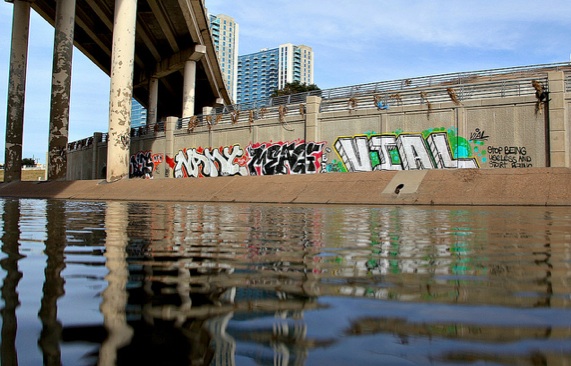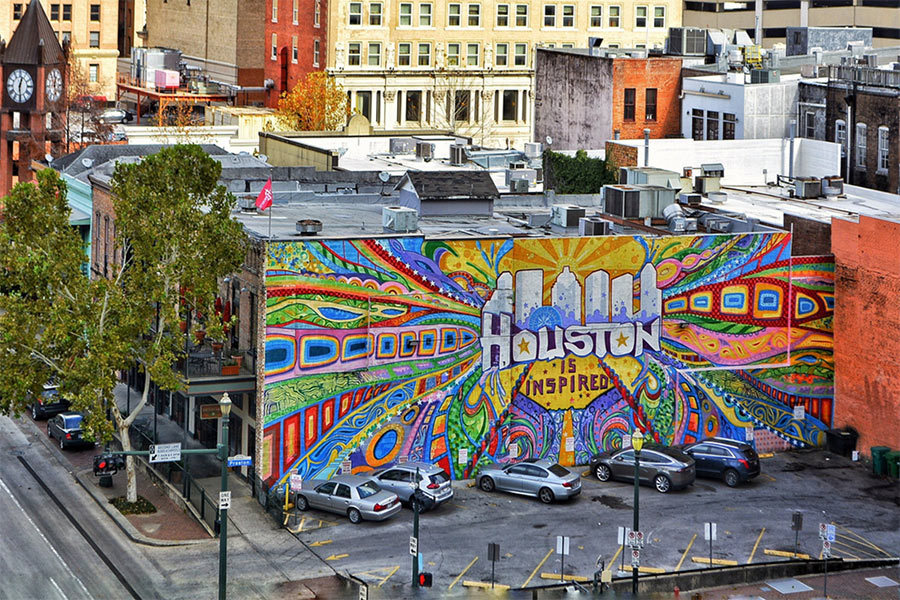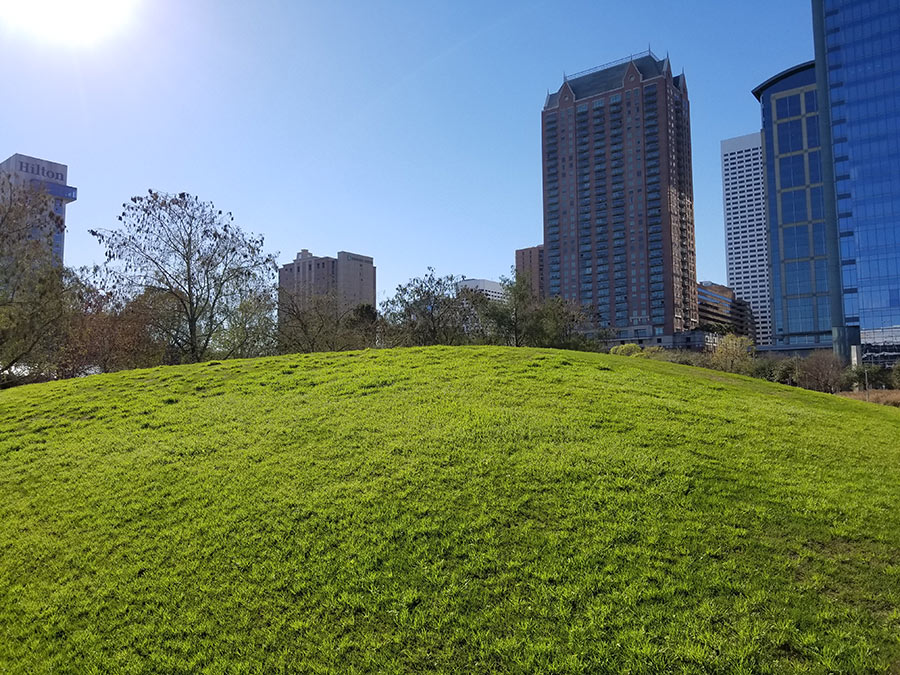
- Newly Named ‘Bistro Menil’ Set To Open Around Labor Day [Food Chronicles]
- Aldi To Open 15th Greater Houston Location in Humble on Jan. 23 [Prime Property]
- City Loosens Booze Sales Restrictions in Hopes of Drawing Supermarkets to ‘Food Deserts’ [Houston Chronicle]
- Woodlands’ Creekside Village Green Development To Offer Retail, Office Space with a Pedestrian-Friendly Feel [Houston Chronicle ($)]
- Clear Lake Residents Protesting 700 Luxury Dwellings Planned for Wetlands [MyFoxHouston]
- State, Federal Government Will Prepare 2 Environmental Studies To Lay Groundwork for Dallas-Houston High-Speed Rail [Houston Business Journal]
- Constellation Field, New Performing Arts Center Meant To Turn Sugar Land into an Entertainment Destination [KHOU]
- CityCentre’s Hotel Sorella, Uptown Park’s Hotel Granduca Named Among Best Hotels Worldwide by Conde Nast Traveler [Culturemap]
- Houston ‘Street Fashion’ Photographer Finds Actual Subjects Outdoors, Not in Cars [Fashion Diaries]
Photo of Brays Bayou: David Elizondo via Swamplot Flickr Pool
Headlines





Not to go on and on about the food desert idea but they’re going to allow booze sales near schools and churches in low income areas so that grocers decide to move in? It’s more of the “nanny state” mentality that believes people are too stupid to decide what’s best for themselves including shopping for healthy foods. What’s stopping someone in 5th Ward who has no car from taking a bus to Whole Foods? I’ve done it several times from the East End when my car was down. But that’s just because I’m a lot smarter than those poor people.
“The language passed Wednesday defines a grocery store as covering at least 10,000 square feet of floor space, and excludes businesses that allow alcoholic drinks to be consumed on site and those that derive more than 25 percent of their gross receipts from booze sales.”
I guess that means the Montrose and Kirby Whole Foods are not grocery stores.
@Dana-X
I find it ironic that you imply that loosening a government restriction in order to give people more access to grocery stores is a “nanny state mentality”
… but implementing that restriction in the first place – no liquor sales near churches – is not a “nanny state mentality”.
Taggers suck.
I noticed that graffiti there a while ago. They should clean that up soon before people get scared away or it encourages others to vandalize. Broken window theory and all…
@Dana-X, why would someone who can’t afford a car go to Whole Foods? It’s wrong on so many levels, not the least of which is the fact that Whole Foods is just a marketing ploy, there’s absolutely no proof their food is any safer or more nutritious than any other grocery store. Plus if you can’t afford a car, perhaps overpriced food should be the least of your priorities.
eiioi, I don’t mean that removing the law is nanny state. I agree that the law is another idea along those lines that probably did zero. I think it’s good that they got rid of the silly law.
I was just using the article to rant about the food desert idea as the latest version of that mentality.
commonsense, I’m not saying anyone should or shouldn’t do anything. People have the freedom to choose their priorities and believe what they want. I bet most lower income people agree with you that people without a car traveling across town by bus to pay $1.99 for a bunch of cilantro that hasn’t been sprayed with pesticides and fungicides that mostly can’t be washed off where they can go locally and get that same cilantro that has been sprayed for .29c is wrong/dumb/ridiculous. That last time I took the bus to Whole Foods the bus was full but I was the only one with WF bags. That’s why Whole Foods doesn’t have a store in poor areas.
My personal belief is that those pesticides and fungicides are real and go into and stay in our bodies and what goes down the input hole known as a mouth has a lot of bearing on health and ultimately health care costs/chronic disease management/profits for the medical/pharmaceutical industries. My personal experiences validate that big time. But to others they don’t see or believe that and having $125 month cable bill and buying jugs of sugar water is more important than eating unadulterated food from the earth. But to me it’s just common sense.
@Dana-X, we can debate the merits of organic food vs. non-organic until the genetically modified cows come home, but there simply is no evidence that organic food is superior to regular food (has been tested ad nauseam). In fact because organics use manure as fertilizer they are more likely to contain pathogens.
I believe healthy vs. not healthy food has less to do with what type of cilantro you buy but what you actually pick in the store…. Sodas vs water, processed meals vs raw ingredients, chips vs dried fruit snacks, etc.
I was trying to comment on the Menil cafe naming and I’m directed to this group of comments.
I clicked on the 8 comments under the Menil story and this is what I get.
I don’t know what you did to the old format, but If It aint broke don’t fix it, because it doesn’t work nearly as well as the old website.
I cant even find the comment section for the Menil Cafe story.
Anyway 450 suggestions and Menil Bistro is the most artistically creative a monniker they could come up with. Give me a break. That’s pretty pathetic. You’d think that with all of those creative minds working at the Menil and those highly educated Board members and all of those artistic people who submitted ideas could have come up with something better than Cafe Bistro. REALLY, REALLY, Cafe Bistro. Mrs. Menil, and Walter Hopps are probably having a real good laugh at this one. I’m sure Paul Winkler is impressed also.
Bistro Menil …it sounds so French!
WOW @ DanaX your an idiot posing as an intellectual aka hipster. There is a reason why poor people don’t shop at Whole Foods its called too expensive. Also because most of the poor are on Food Stamps and cooked meals which Whole Foods sells a lot of is not covered under SNAP guidelines. Back to the story, no the East End is not a Food Desert, however Third Ward and Second Ward are though. The Booz ban was put in place because stores where only opened to sale alcohol and cigarettes and where contributing to the decline of the communities. Only problem is these neighborhoods need jobs so even if you put a grocery store in them, most will have to make do with mostly SNAP only shoppers. Still I applaud the city for at least making a move in the right direction, now we need the banks to loosen up the purse strings as well.
SimplSid, what are you, a moron? Whole Foods takes food stamps. You can also shop economically at Whole Foods and eat good. You and Commonsense enjoy your pesticide lade vegetables from Randalls, or wherever you shop.
The comment that started this food desert/alcohol discussion was incredibly mean-spirited. If you’re riding the bus for grocery shopping in Houston’s hot weather, your perishables are going to spoil. Poor people are not dumb. If you are working multiple part-time jobs and have no child care, bus rides take precious time, hours, and that’s if the buses are running as scheduled. If you haven’t been poor, please spend some time at Houston Food Bank or the church of your choice really learning about living in poverty. And, it appears that Jim’s Food Store (see recent Chronicle) could be a more likely solution to serving food deserts than the large chains.
What is incredibly mean spirited are the posts by those posing as the compassionate ones while feeling free to launch real meanness at someone else with a different viewpoint of a situation.
1) Taking a bus to get food is possible, not easy, but possible. I used my excursions to WF as an example, an example of someone who takes food as a priority. Most people, including poor people, don’t. There is no cable TV desert, 8-liner curbside casino game room desert or liquor store desert. That’s because people have money to spend on those things in those neighborhoods.
2)The idea of the food desert is based on the idea that, since there are only convenience stores and gas stations nearby, then those poor souls will only eat chips and drink sodas. Have you ever met anyone like that? Universities, foundations, endowments etc. spend enormous amounts of time and money researching this sort of thing. People with lots of letters after their names get together and publish papers that claim to discover that children in low-income areas average 1 soda a day due to living in a food desert, then come up with “solutions” requiring more funding and research. These are the people who create and propagate these buzzwords like “food desert”, “under-served areas”, “barriers to access”, “SSB” (sugar-sweetened beverages). etc. There are your true “hipsters”, SimpleSid. The poor neighborhoods are simply laboratories/petri dishes to keep the funding rolling in since most of those parasites depend on it. While there are a lot of those people who believe they’re really helping people, a lot of that research is just academic masturbation/parasitic nonsense that has no effect or real interest in those people. I have some experience in this.
3) So saying I’m “smarter” because I figured out how to schedule time for a bus ride and use ice packs for perishables was an attempt to point out that the people who promote the food desert idea don’t believe poor people will or can do that. They won’t, but they can. And some do. Where there’s a will, there’s a way. But it’s not a priority. You could plop down a Kroger in any food desert and there would still be a solid wall of sodas, another of bakery goods and chips and obese people would still waddle out with carts filled to the tops with that stuff.
4) I know what being poor is. It requires smart budgeting and establishing priorities. If food choices and health aren’t one of the biggest, then what is? TV watching? Beer drinking? Buying lottery tickets? Smart and dumb health choices really have very little to do with income.
Darby Mom, it may have been snark on the part of the commenter so I gave him/her the benefit of the doubt, but living in poverty does affect cognitive processes and affects decision making. Not knowing if you will make it financially until the end of the month is much more taxing mentally and physically exhausting than not having your car for a few days (and knowing you will be able to pay for it when it’s repaired) when it comes to making choices and decisions that are easy for the financially secure.
http://www.sciencemag.org/content/341/6149/976
Not this “food desert” BS again. What it is is pure laziness. Cry me a river. Someone has to travel 3 miles to a grocery store? OMG!!!! -rolling eyes-